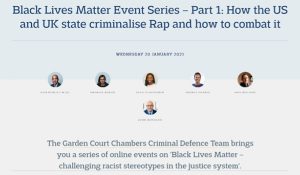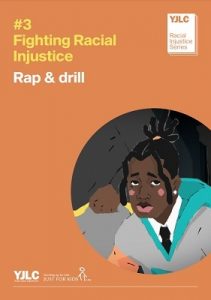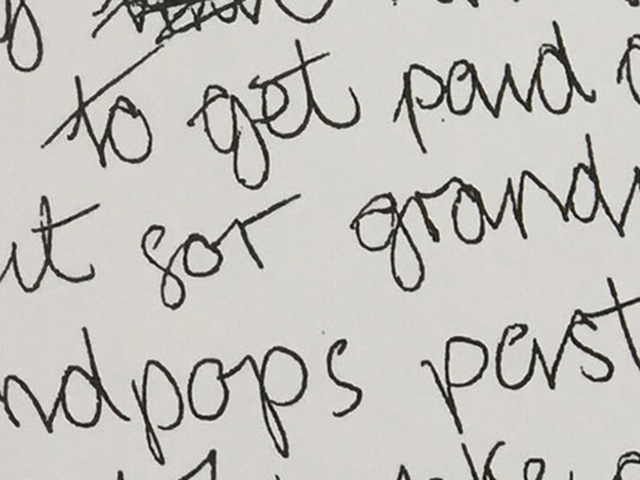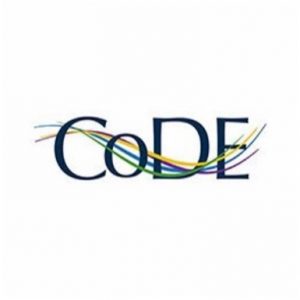
Legal
Resources for lawyers and families: Find expert witnesses and explore legal scholarship, webinars and guidance on how to scrutinise and challenge rap evidence.
Spotlight on legislation
Art Not Evidence is a new campaign to keep creative expression out of the courtroom. Founded by lawyers, scholars, music industry professionals and human rights organisers, it believes that art, and particularly rap music, should be protected as a fundamental form of freedom of expression, and should not be used to unfairly implicate individuals in criminal charges. For more details, see https://www.artnotevidence.org/
Expert witnesses
Independent experts in Black youth music culture, digital culture, the legal use of rap evidence and/or Black language who have been instructed in cases and can be contacted if and when cases arise.
Mr Franklyn Addo
Mr. Franklyn Addo MA is a frontline practitioner, youth worker, researcher, and journalist. His expertise is in youth violence and exploitation, as well as rap music and youth cultures. He has written for the I and Guardian and is completing a book on rap music. Franklyn has for many years worked supporting vulnerable young people in contexts from education to criminal justice. He most recently managed a hospital-based programme which helps to rehabilitate survivors of violent assault in collaboration with statutory and voluntary partners. Franklyn has served as an expert in cases involving ‘gangs’, rap music, the digital domain, and colloquial language.
Email: hello@franklynaddo.co.uk
Dr Yusef Bakkali
Dr Yusef Bakkali is a Senior Research Fellow based at The Stephen Lawrence Research Centre at De Montfort University. He successfully completed his Economic and Social Research Council-funded doctorate at the University of Sussex in 2018. He has published research in high impact journals such as The Sociological Review and Current Sociology, which included data from in-depth interviews with rap artists and self-identifying gang members in marginalised neighbourhoods. His working-class roots in Brixton, south London, living in close proximity to issues of inequality, violence and marginality has equipped Yusef with a high level of ‘street literacy’.
Email: Yusef.bakkali@dmu.ac.uk
Mr Charlie Parker Bucknall
Charlie ‘Parker’ Bucknall is a musician/producer, youth justice expert, practitioner and mentor with over 30 years’ experience of working with young people disproportionately affected by discrimination/racism, social and economic disadvantage, exposure to criminality, violence, gang culture and childhood trauma. A pioneer in the UK’s burgeoning hip hop scene of the 1990s, Charlie moved beyond the music industry to focus on using music and associated arts to help support young people in some of London and the South East’s most marginalised communities. Charlie runs HMDT Music’s One Spirit project in custody (HMYOIs Feltham and Cookham Wood, Oakhill STC and HMP Aylesbury) as well as in mainstream and alternative provision education settings across London and the South East and has developed a significant presence in the community supporting and mentoring at risk and criminalised young people through his own organisation Hiphology.
Email: fasfwd@aol.com
Dr Lambros Fatsis
Dr Lambros Fatsis is Senior Lecturer in Criminology, City University. He is a Fellow of the Higher Education Academy and won the British Society of Criminology Blogger of the Year Award in 2019. Dr. Fatsis has given evidence both in writing and in court. He has expertise in rap music and Black youth culture, policing and the criminalisation of Black music subcultures.
Email: lambros.fatsis@city.ac.uk
Dr Anthony Gunter
Dr Anthony Gunter is a Senior Lecturer and Programme Lead for Childhood and Youth Studies in the School of Education at the Open University. Before embarking on a career in academia he worked for over 14 years in South and East London, firstly as a detached community and youth worker before taking on Project and Area Manager roles. His research interests and expertise are in the areas of: Black young people; youth cultures and transitions; serious youth violence and gangs
Dr Jonathan Ilan
Dr Jonathan Ilan [LLB, PhD, PGCHE] is Senior Lecturer in Criminology, City University of London. Dr Ilan is author of Understanding Street Culture: Poverty, crime, youth and cool (Macmillan HE, 2015) and peer-reviewed academic publications on matters relating to socio-economic marginalisation, criminal behaviour, criminalisation and street music. Having written on the risk of over-ascribing ‘gang’ identity and the problems associated with using drill music as evidence, he is well placed to provide expert opinion on these particular issues.
Mr Tareeq O. Jalloh
Tareeq Jalloh is a Philosophy PhD Candidate at the University of Sheffield, with expertise in rap music, race and concepts of justice. His research publications explore arguments about the relationship between rap music and oppression.
Email: tareeqjalloh@gmail.com
Dr Nicci MacLeod
Dr Nicci MacLeod is Senior Lecturer in English Language and Linguistics, Northumbria University. Dr MacLeod provides expertise on the issue of determining meaning of non-standard language, including reviewing methods for doing so and providing responses to opposing expert reports. Her latest publication, on this issue in relation to forensic linguistic experts, is freely available to access.
Ms Adèle Oliver
Adèle Oliver is the author of the book Deeping It: Colonialism, Culture and Criminalisation of UK Drill (2023), which explores drill rap music and its alleged links to knife crime and gang violence. It also considers drill in the contexts of Black art, policy, consumerism and colonialism. Adele graduated from SOAS, University of London, with an MA in Postcolonial Studies, and has an undergraduate degree in Portuguese and Linguistics (University of Edinburgh). Outside of her academic work, Adèle is a musician and producer, with years of experience in live performance and studio production, with a 2024 commission from the Arts Council England to produce a stage show with live music, rap, and poetry. She has expertise in musical and linguistic knowledge of Black art forms and idiomatic language.
Email: adele.oliver4@gmail.com
Dr Abenaa Owusu-Bempah
Dr Abenaa Owusu-Bempah is Associate Professor of Law, London School of Economics (LSE). Her scholarship focuses on criminal procedure, the law of evidence and criminal law, with a particular emphasis on fair trial rights. Her current research explores the criminalisation of rap music and the use of rap as evidence in criminal trials.
Email: a.owusu-bempah@lse.ac.uk
Mr Will Pritchard
Mr Will Pritchard is a journalist and volunteer youth worker based in London. He has written extensively about UK rap and grime, among other things, for titles including Pitchfork, The Face, The Guardian, and more. He has served as a rap expert.
Prof Eithne Quinn
Prof Eithne Quinn is based in the School of Arts, Languages and Cultures at The University of Manchester. She is the author of ‘Nuthin’ but a G Thang: The Culture and Commerce of Gangsta Rap’ and led an AHRC project on Prosecuting Rap: Criminal Justice and UK Black Youth Expressive Culture. Her current work focuses on racism and inequalities in the justice system. She has worked as a rap expert in UK court cases since 2008 and is a full member of the Academy of Experts.
Mr Ciaran Thapar
Mr Ciaran Thapar is a youth worker and author based in London. With experience working in schools, youth services and prisons, he is the founder of RoadWorks LDN, an education organisation which aims to reduce social exclusion amongst young people facing systemic inequality. His debut book, ’Cut Short’, a nonfiction story about young life and youth violence in south London, was published in 2021. He writes regularly for British GQ and the Guardian. He has contributed to 10+ criminal trials on issues relating to ‘gangs’, social media, music lyrics and colloquial language.
Spotlight on law scholarship
Law scholarship that lawyers should consult when rap material is sought to be adduced.
Prosecuting rap: what does the case law tell us?
Prosecuting rap: what does the case law tell us?
Abenaa Owusu-Bempah (2022), Popular Music 41 (no. 4), 427-45.
Ban rap and drill lyrics in the courtroom
Keir Monteith (2022), Popular Music 41 (no. 4), 546-557.
The Irrelevance of Rap

Dr Abenaa Owusu Bempah
Abenaa Owusu-Bempah (2022), Criminal Law Review (no. 2):130-151
This article explores the question of whether (and when) rap music is relevant evidence of a crime, and how this has been assessed by the courts in England and Wales. Particular consideration is given to the courts’ assessment of factors which can affect the probative value of rap, as well as the way in which one’s views and experiences may inform determinations of relevance. It is argued that the courts have taken a relaxed and uninformed approach to the assessment of the relevance of rap, and that, if rap is to be admissible evidence, a more rigorous approach is required.
Bodies of Knowledge and Robes of Expertise: Expert Evidence about Drugs, Gangs and Human Trafficking

Professor Tony Ward (Northumbria University)

Dr Shahrzad Fouldvand (University of Sussex)
Tony Ward and Shahrzad Fouladvand (2021), Criminal Law Review (no. 6), pp. 442-460
This article discusses a type of expert witness whose claim to expertise is not based on their formal qualifications, but rather on the fact that their work frequently brings them into contact with a certain form of criminal activity, and their experience together with that of colleagues constitutes a ‘body of knowledge’ about which they can inform the jury. This includes police evidence about rap performances and their supposed links to gang activities.
The authors argue that police officers who hold themselves out as experts need to be held to the same standards of reliability as other expert witnesses. Criminal Practice Direction 35A provides guidance for judges on assessing the reliability of expert evidence. Evidence which takes rap lyrics, performers’ gestures, etc at face value as indicating their criminal activities or gang affiliation is likely to suffer from one or more of the flaws which the Practice Direction cites as indicating that evidence is unreliable: being based on unjustifiable assumptions, flawed data, and/or inferences that have not been properly reached.
Spotlight on lawyers
The following resources help lawyers understand the various ways that rap is being used in legal cases and how to challenge it.
Garden Court Chambers London
 The criminal defence team at Garden Court has played a leading role in challenging the unfair targeting of rap and rappers by the criminal justice system. In 2020-21, they mounted two landmark series of online seminars to combat racist stereotyping in the justice system. The series featured Garden Court barristers including Shahida Begum, Alex Taylor-Camara, Shina Animashaun and Danielle Manson and was spearheaded by Keir Monteith KC, an external advisor on the Prosecuting Rap project.
The criminal defence team at Garden Court has played a leading role in challenging the unfair targeting of rap and rappers by the criminal justice system. In 2020-21, they mounted two landmark series of online seminars to combat racist stereotyping in the justice system. The series featured Garden Court barristers including Shahida Begum, Alex Taylor-Camara, Shina Animashaun and Danielle Manson and was spearheaded by Keir Monteith KC, an external advisor on the Prosecuting Rap project.
Legal webinars
 Series 1: Drill music, gangs and prosecutions – challenging racist stereotypes in the criminal justice system.
Series 1: Drill music, gangs and prosecutions – challenging racist stereotypes in the criminal justice system.
- Part 1: Understanding Drill, artist & expert testimony
- Part 2: Challenging the admissibility of Drill music in criminal trials
- Part 3: Drill music Injunctions and ancillary orders
- Part 4: Debunking prosecution myths: “Gang” stereotypes, joint enterprise, racist stop & searches
- Part 5: Pre-trial issues and Criminal Behaviour Orders
- Part 6: How to exclude “gang evidence” in criminal trials & challenging the Joint Enterprise narrative
- Series 1 overview
Series 2: Black Lives Matter: Challenging racist stereotypes in the justice system.
- Series 2 Introduction by David Lammy MP
- Part 1a: How the US & UK state criminalise rap and how to combat it
- Part 1b: How the US & UK state criminalise rap and how to combat it
- Part 2: Gang Mythologies and Deportation
Legal blogs
- ‘Drill music, gangs, and prosecutions—challenging racist stereotypes in the criminal justice system’
Shina Animashaun and Russell Fraser - ‘Rap and the State’s double whammy: Lack of expert challenge to racist stereotyping’
Keir Monteith QC







